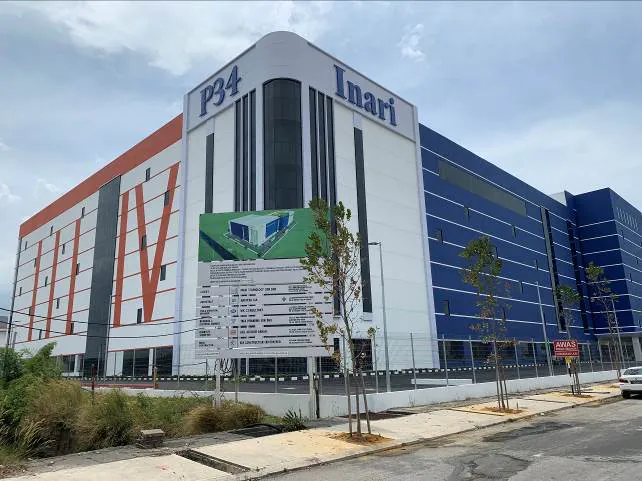Kenanga Research has maintained an “OVERWEIGHT” stance on Technology sector in its latest Sector Update report as the research house sees a mild inventory adjustment cycle.
While inventory adjustments are currently taking place with the likes of TSMC suggesting that it might continue into 1HCY23, the Taiwan-based semiconductor giant holds the view that the realignment period may be shorter as compared to previous cycles. In addition, the research house’s channel checks indicated that tech companies intend to continue maintaining a higher inventory level compared to past practices as they foresee a shallow dip which will be followed by an upcycle subsequently. This is evidenced by the commitment of local OSAT players such as UNISEM and MPI which are carrying on with their respective major capacity expansions in both China and Malaysia that are expected to come online between 2HCY23 and early 2024.
Global chip sales to climb 13.6% YoY. Global chip demand continued to climb as Semiconductor Industry Association (SIA) reported a 13.3% YoY increase in semiconductor sales for 2QCY22 to USD152.5b. The latest data in July continued to show growth at 7.3% YoY as the US market led with YoY gains of 20.9%, followed by Europe (+15.2%) and Japan (+13.1%) which offset the slowdown in China (-1.8%) due to the prolonged lockdowns. However, with easing restrictions in China, the research house remains sanguine on the sector as its view is also echoed by the World Semiconductor Trade Statistics (WSTS) which forecast a 13.6% and 4.6% YoY gain for 2022 and 2023, respectively.
The escalation in the US-China chip war on the heels of the passing of the USD52b CHIPS Act will likely benefit Malaysia which is seen as neutral ground. It is understood that MNCs are beginning to relocate out of China and into Malaysia for chip packaging services. This trend is expected to be more prominent for US companies that received grants from the CHIPS Act. Meanwhile, China is showing no signs of slowing down from its aggressive push for technological superiority. Hence, companies such as INARI and MPI have adopted the “China for China; Malaysia for the West” strategy as they continue to expand their capacity in Kunshan and Suzhou, respectively, as well as their plants in Malaysia to benefit from both sides.
Latest US smartphone launch appears promising as the manufacturer kept its prices unchanged resulting in overwhelming pre-order traffic in China which crashed the tech giant’s website, according to the South China Morning Post. The exuberance has also been witnessed on alternative Chinese e-commerce sites such as JD.com which recorded more than 2m orders within 24 hours after pre-orders opened, exhibiting similar momentum as seen during last year’s launch. It is attributed this phenomenon to the revenge spending behaviour among Chinese consumers given the prolonged lockdown. As such, Kenanga Research continues to like INARI given its exposure to the US smartphone 5G radio frequency (RF) supply chain.
Continuing along the lines of revenge spending, SKPRES stands to benefit as order volume for its key customer’s household and personal products remain elevated, especially orders coming from China. Given the stickiness of its customer and absence of competition from peers, the research house believes SKPRES’s services will continue to be heavily relied on as its customer looks to double their product range by 2025. Meanwhile, SKPRES has received requests to ramp up production further in anticipation of the year-end festive season. In addition, the group is expected to kick start the production of two new products in October which will contribute positively in 3QFY23. To cope with the additional lines, SKPRES has added 850 new workers in batches since June and will have another 250 workers coming in by September. This will bring its total workforce to approximately 7,500 workers.
Supply constraint for automotive semiconductor is expected to continue throughout 2022 as companies such as UNISEM and MPI indicated that their respective automotive customers continue to struggle with deliveries with delivery time for certain car models ranging from 6 to 9 months while some new model launches are being pushed back. This situation may potentially drag beyond 2022 with the recovery of car sales in recent months in both China and Europe. However, the Kenanga Research maintains a MARKET PERFORM call for those two stocks given China’s ongoing lockdown which will likely impact their immediate-term prospects as UNISEM and MPI have operations in Chengdu and Suzhou, respectively.
Kenanga Research’s top picks are:
(i) INARI. It is believed INARI will continue to benefit from the positive market reaction towards the latest US smartphone launch. The recommendation is based on reasons: (i) having one of the best profitability in the OSAT space, (ii) its direct involvement in the 5G supply chain, and (iii) its constant improvement and innovation to ensure customer’s stickiness. The target price, RM3.45 includes a +5% adjustment based on ESG given a 4-star rating as appraised by the research house.
(ii) SKPRES is expected to see subsequent strong quarters as the year-end shopping season draws near. Reasons being: (i) as the main proxy to a fast-growing premium household products brand, (ii) its ability to keep margins stable despite higher wages and raw material cost, and (iii) its customer’s high dependency on the group. There is no adjustment to TP based on ESG given a 3-star rating as appraised by the research house.









